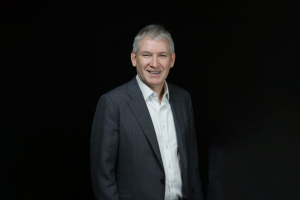Carney has to wean UK off QE and low rates says Warwick professor

A FORMER member of the Bank of England’s Monetary Policy Committee who is also a senior Midlands academic has said new Governor Mark Carney’s biggest challenge will be to wean the UK off quantitative easing and low interest rates without causing panic in the markets.
Professor Andrew Sentance, of Warwick Business School, said he did not believe Carney, who began his tenure as Sir Mervyn King’s successor yesterday, would begin by ushering in more loose monetary policy.
Professor Sentance said it was more likely Carney would take a watching brief as he bedded himself in at the Bank.
“The big challenge he will face over his five years as Governor is managing the exit from these very stimulatory monetary policies,” said Professor Sentance.
“I don’t think that will come on his agenda straight away. If he is sensible he will want to listen and observe and analyse the situation of the economy with his colleagues at the Bank first. But the notion that he was going to come in and provide lots of stimulus was unrealistic. He is going to have a period of watching and waiting first.
“Monetary policy has been on a very expansionary setting for some time, with very low interest rates for four years and a lot of QE injected. We have reached the limits of what monetary policy can do.”
He said the US had already seen how sensitive the markets were to the idea of withdrawing QE as they slumped badly last month when Federal Reserve chairman Ben Bernanke indicated it would be scaling it back.
And Professor Sentance said he felt communication would be a vital part of Carney’s new role.
“Communication and guidance could be very important when the Bank starts moving us away from the very low interest rates and when it wants to start unwinding QE,” said Professor Sentance, who is Professor of Sustainable Business at the Business School.
“Because there is a danger the markets will overreact and think that interest rates are going to go up very sharply. The right approach is for the Bank to communicate to the markets that this is a gradual process and will need to go on over a number of years.”

“He will not be able to jump in straight away and say exactly what he is going to do for two reasons,” he said.
“First, he is coming from Canada which is a very different situation so he needs to observe and take stock for a while. Secondly decisions are not taken by him personally, which is the case in Canada, but taken by the MPC. Any decision will be something that the MPC as a group signs up to; that is going to be quite difficult, as we know from the minutes there are disagreements in the MPC about what the stance should be at the moment.”
Professor Sentance also argued that Carney would face a big management challenge in his new role.
“The Bank’s responsibility has greatly increased,” he said. “It now has to deal with monetary policy, financial stability and financial regulation. I think he has to delegate more responsibility to the deputy governors, and act more like a chairman of the Bank.”
In relation to the regulation of the financial system, instead of radical change, Professor Sentance said he felt Carney’s policy should be based on stability and continuity.








